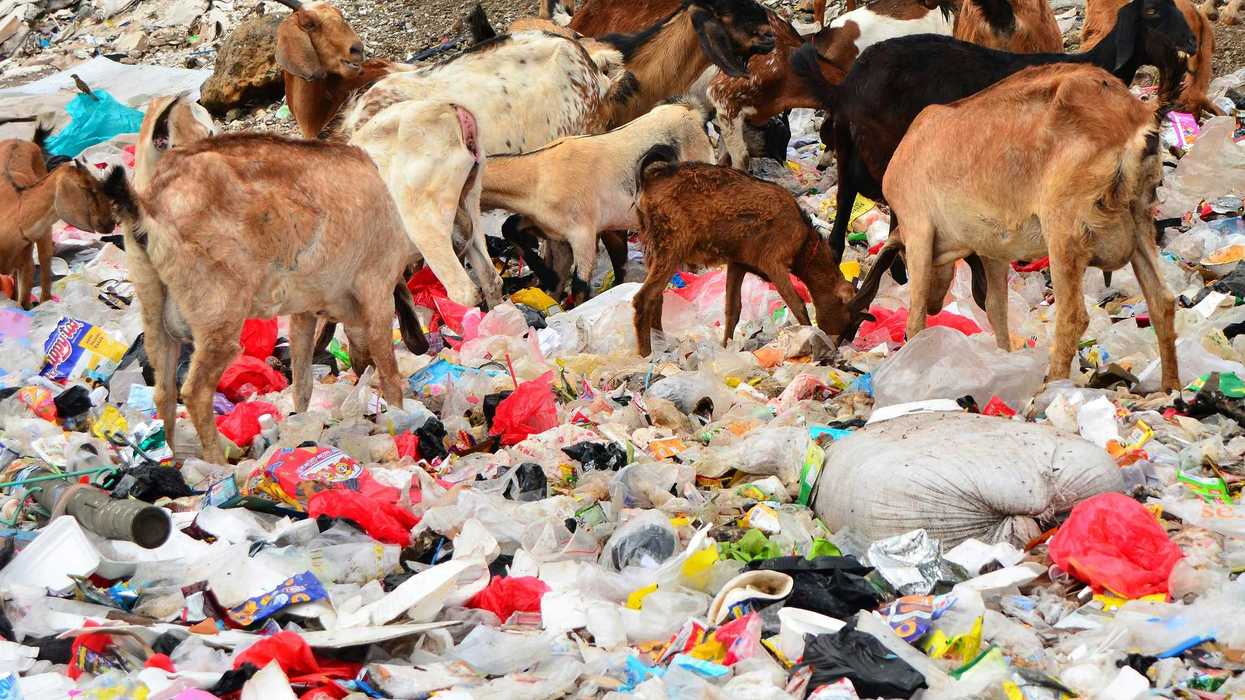The cost of harmful chemical and heavy metal exposures around the world likely tops 10 percent of the global GDP, according to a new study.
The study, published today in the journal Environmental Health, finds that current calculations of harmful exposures underestimate the total costs to society by leaving out certain health impacts and only focusing on a fraction of the total contaminants people are exposed to.
"Our findings suggest that a revised paradigm is required for evaluating and prioritizing the environmental contribution to human illness and the associated costs," the authors wrote.
The researchers looked at exposures to contaminants such as air pollution, endocrine disrupting chemicals, lead, mercury, pesticides and flame retardants and calculated how much they end up costing societies due to illnesses, reduced brain function, health care bills, and lost wages and productivity for employers.
They found such exposures "contribute costs that may exceed 10% of the global domestic product" and that current calculations "substantially underestimate the economic costs associated with preventable environmental risk factors."
Gross domestic product is a measure of a country's total economy, and includes the value of all goods and services produced. In 2016, the global GDP was $75 trillion, according to the World Bank.
"This is a great study and the field needs more studies that can monetize the environmentally related health outcomes," said Surili Patel, the deputy director, Center for Public Health Policy, at the American Public Health Association. Patel was not involved in the study.
For developed countries such as the U.S., the money lost to harmful exposures is about equal to what is currently spent on disease diagnosis and treatment, said lead author of the new study, Philippe Grandjean, an environmental health researcher and professor at Harvard's School of Public Health.
The study was triggered by ongoing efforts by scientists to document the total burden and costs of diseases.
Grandjean and his colleague, Martine Bellanger of the EHESP School of Public Health in Paris, came across a recent estimate published in the Lancet journal that found environmental exposures contributed to about 5 percent of disability adjusted life years lost, which is a measurement that combines duration and quality of life.
"We couldn't believe it would be so low," Grandjean said.
He said the estimates in the Lancet only took "substantial" health effects into account. "For example – lead, they looked at lead poisoning, but did not look at the deficits," Grandjean said, referring to the reduced brain function that lead exposures can cause.
"Optimal brain functions, not just the absence of intellectual disabilities, are necessary for health and for productivity in society," Grandjean and Bellanger wrote.
Also certain toxics—such as mercury and pesticides—were not included in the Lancet report.
Grandjean said he hopes the new study gets into the hands of policymakers and health care providers and that it helps refocus our priorities in protecting people's health.
"We're talking about something that, in principle, is preventable," he said. "We ought to do a whole lot more for prevention—the gains could be huge."
- Tracking down a poison: Inside the fight for global action on lead - EHN ›
- Cleaning your house—and hands—helps reduce flame retardant exposure - EHN ›















